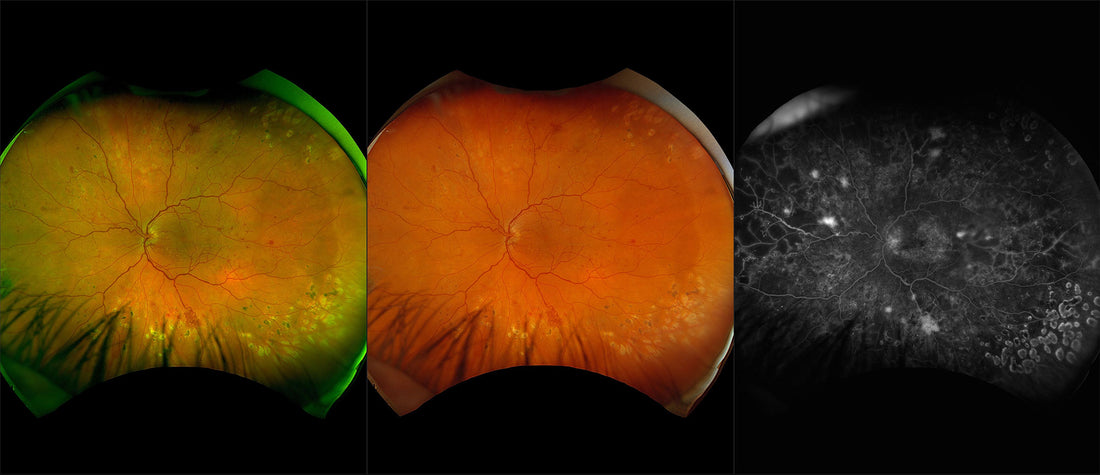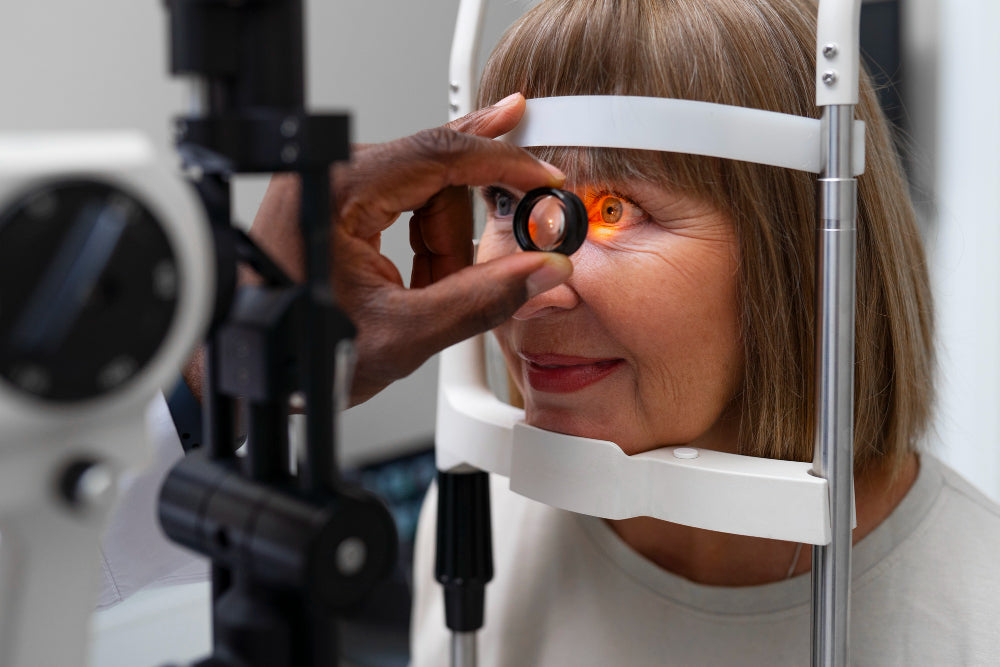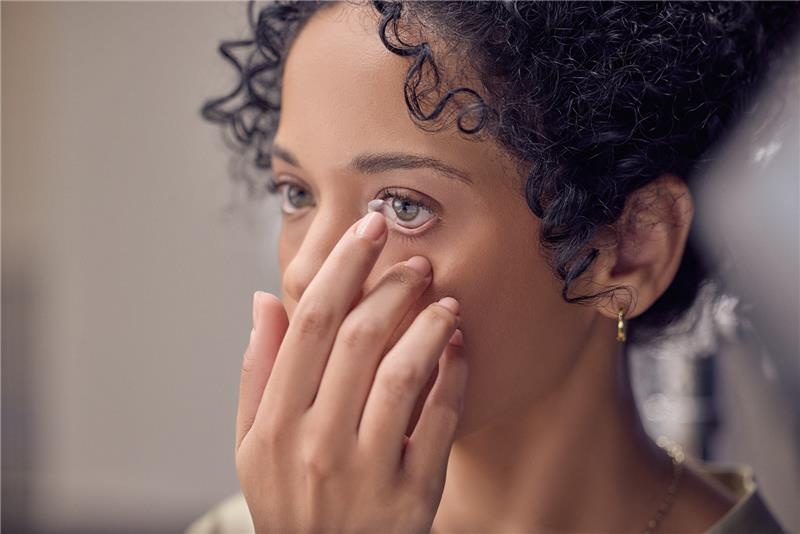Diabetic retinopathy is a severe complication of diabetes, affecting the eyes and potentially leading to vision loss if left untreated. For those living with diabetes, the question often arises: can diabetic retinopathy be reversed?
Diabetic retinopathy can be managed, and its progression is slowed with proper diabetes control and timely treatment. Still, complete reversal of the condition may not always be possible, particularly in advanced stages.
Before we jump to conclusions, let’s find out. Can diabetic retinopathy be reversed?
Diabetic Retinopathy: Stopping the Siege on Your Sight

Diabetic retinopathy, a complication of diabetes that damages the light-sensitive retina in your eye, can be a scary diagnosis. Visions of blurry sights and potential blindness may dance in your head.
Diabetic retinopathy affects the blood vessels in the retina, the light-sensitive tissue on the back of your eye. High blood sugar levels associated with diabetes can affect your eyes in the following ways:
- Damage to blood vessels
- Leakage from damaged blood vessels leads to swelling of the retina
- Abnormal new blood vessels form due to lack of oxygen and bleed even easier
These changes can impair vision and, if left untreated, may progress to severe vision loss or blindness.
Who is Susceptible to Diabetic Retinopathy?
While anyone with diabetes can develop diabetic retinopathy, certain factors increase the risk. You're at a higher risk if you:
- Experience uncontrolled blood sugar levels
- Have high blood pressure
- Eat a diet high in carbohydrates
- Are pregnant
- Engage in regular smoking
- Consume alcohol
- Have had diabetes for an extended period
Diabetic retinopathy can cause significant vision impairment, potentially leading to vision loss. But can eye damage from diabetes be reversed if you're already affected?
Signs and Symptoms
Manifestations of diabetic retinopathy encompass:
- Perceiving spots or floaters in vision
- Experiencing fluctuating or blurred vision
- Noticing a dark or empty spot in the central vision
- Struggling with night vision
- Blindness or vision loss
Is Diabetic Retinopathy Reversible?
The question on many minds is whether diabetic retinopathy can be reversed. The answer is not a simple yes or no. The reversibility of diabetic retinopathy depends on various factors, including:
- The stage of the condition
- The effectiveness of diabetes management
- Individual health factors, and more
Early Stage
In the early stages, known as non-proliferative diabetic retinopathy, the damage to the retina may be mild, and vision changes may not be significant.
At this stage, with careful management of blood sugar levels and blood pressure it is possible to slow or even halt the progression of the disease.
In some cases, with diligent management, improvements in vision may occur as the retinal blood vessels stabilize.
Advanced Stage
However, in more advanced stages, such as proliferative diabetic retinopathy, where abnormal blood vessels grow under the retina, the damage may be more severe and irreversible.
These abnormal vessels bleed easier and can cause scarring and retinal detachment leading to significant vision loss. In such cases, while laser therapy or injections may help prevent further damage, the existing vision loss may not be fully reversible.
Strategies for Managing Diabetic Retinopathy

If you are looking for how to reverse diabetic retinopathy, we reiterate that it's not entirely possible, but managing the condition may resolve many of your eye health problems.
While complete reversal of diabetic retinopathy may not always be possible, there are several strategies individuals can employ to manage the condition and potentially improve their eye health:
1. Good Blood Sugar Control
Maintaining target blood sugar levels is crucial in managing diabetic retinopathy. Consistent monitoring of blood glucose levels, following a healthy diet, exercising regularly, and taking prescribed medications as directed by healthcare providers can help keep blood sugar levels within a healthy range.
2. Blood Pressure Management
High blood pressure can exacerbate diabetic retinopathy. If necessary, managing these risk factors through lifestyle modifications and medication can help protect the blood vessels in the eyes and reduce the risk of further damage.
3. Regular Eye Exams
Routine eye exams are essential for detecting diabetic retinopathy or any other eye health issue early when treatment options may be more effective. Individuals with diabetes should undergo comprehensive eye exams at least once a year or as their eye care specialist recommends.
4. Laser Treatment and Surgical Options
Depending on the severity of diabetic retinopathy, laser treatment or surgery may be recommended to stop or slow down the progression of the condition. These procedures aim to seal leaking blood vessels, reduce swelling, and prevent further damage to the retina.
5. Eye Injections
Anti-VEGF eye injections inhibit abnormal blood vessel growth, aiding in vision preservation. This treatment involves targeted medication delivery directly into the eye. Its efficacy lies in slowing the progression of eye conditions such as macular degeneration and diabetic retinopathy.
Eye damage from diabetes cannot always be reversed, but can be managed for the better. Just be mindful of the possibilities you can leverage and be patient while exploring these options.
Is Reversing Retinopathy Possible Naturally?

Once damage to the retina has occurred, no natural method exists to reverse the condition. However, following fundamental diabetes management practices such as regular exercise, a healthy diet, and stable blood sugar levels remains paramount for diabetic eye health.
Moreover, abstaining from smoking and adhering to a low carbohydrate diet can potentially slow down the progression of diabetic retinopathy naturally.
Wrapping Up
While the question of whether diabetic eye damage can be reversed does not have a definitive answer, proactive diabetes management and regular eye care are crucial in preserving vision and preventing further damage.
By maintaining healthy lifestyle habits, closely monitoring blood sugar levels, and seeking timely treatment, individuals with diabetes can take control of their eye health and reduce the risk of vision loss associated with diabetic retinopathy.

Remember: Early detection and proper management are crucial for preserving your vision. By working closely with your doctor and maintaining good diabetic control, you can significantly reduce the risk of vision loss from diabetic retinopathy.
Don’t wait until it's too late. Schedule your eye exam today!
Also read:





